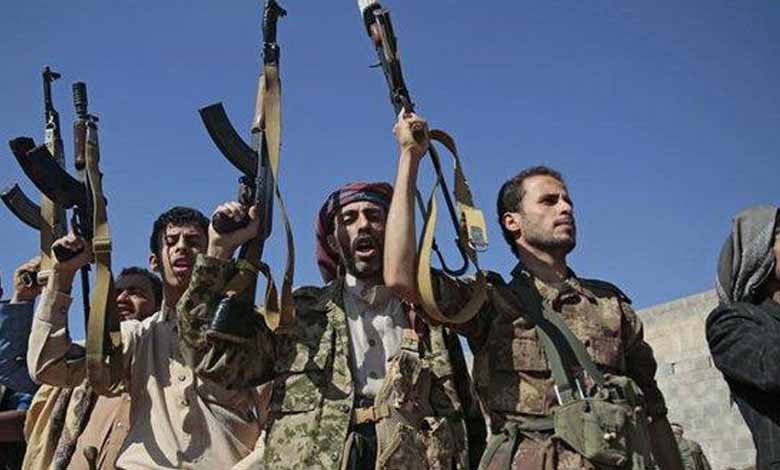Expanding Yemen Truce: An International Demand Hits Back at Houthi Intransigence

International efforts fail to pressure Houthi to implement truce pledges as the UN envoy to Yemen presents a new proposal to expand the fragile agreement.
A Yemeni government official said the road-opening negotiating team received a new proposal from the UN envoy to extend the truce, which Houthi has blocked for an additional six months on the pretext of not delivering salaries.
Nabil Jamil, a member of the government negotiating team to open the roads to Taiz, said in a tweet that the team “received a new proposal from UN envoy Hans Grundberg within the broad armistice process.”
“The opening of main roads in Taiz and the rest of the provinces, and the payment of salaries to employees in areas controlled by militias, are the top priorities” of the UN proposal, he said.
The Yemeni government official called on Houthi militias to “respond to international efforts to alleviate the suffering of Yemenis away from regional calculations”.
Jamal did not provide more details about the new UN proposal, but a Yemeni source said that the new proposal provides for an extension of the truce for an additional six months with a comprehensive ceasefire, the opening of roads including Taiz roads, increased flights from Sanaa airport, according to a chronic plan, and addressing economic issues.
This coincides with an intense international and UN effort to convince the Yemeni parties to accept the UN proposal to extend the truce, open roads and resolve economic issues. The Houthis are raising the “salaries” sign, while the Yemeni government is committed to fully implementing the truce.
Houthi intransigence
The new UN proposal supports the Security Council, the European Union, and U.S. and U.N. envoys, and in recent days has been a broad-based effort to pressure the Presidential Council while failing to extract any concessions from the Iranian-backed Houthi militia.
Recently, the UN envoy, the European Union delegation and China’s ambassador to Yemen held a series of meetings, the most recent of which was on Monday and Tuesday in separate meetings with President of the Presidential Command Council Rashad al-Alimi and members of the Council.
The meetings touched on “UN efforts co-ordinated with the region and the international community to renew the truce and the opportunities to expand it to alleviate the human suffering of the Yemeni people, and the international pressure required to push the Houthis to fulfill their obligations under the truce agreement and the Stockholm agreement,” Yemen’s official news agency Saba reported.
The Presidential Command Council in Yemen previously welcomed the renewal of the truce on the condition that “it will not be at the expense of the future of Yemenis, and in preparation for a bloody round of war, the granting of sovereignty and the empowerment of the Houthi terrorist militias.”
“Terrorist militias are still closing Taiz and other provinces, refusing to pay employees’ salaries, releasing prisoners and detainees, and looking for any pretext to thwart the truce and obstruct UN efforts to renew and build on it in order to achieve comprehensive peace,” the council said.
Conflicting visions
As the international community’s demands collide with Houthi’s intransigence, including lifting the siege of Taiz, observers urged the Presidential Council to consider alternative and quick options, including force, to triumph for the values of freedom, peace and coexistence for the Yemeni people.
According to Abdul Sattar al-Shumairi, head of the Yemen Ojeda Center for Studies, the truce serves as a calming and freezing of the Yemeni issue. There are conflicting visions, first among the Yemeni people and the Presidential Council, that the truce enabled the Houthis to regroup for years to come and that deterrence is necessary.
The other vision, is one of the international community and the United Nations that sees the truce as a comprehensive political solution alongside the US security vision, which treats Yemen as a security issue focused on combating terrorism and securing global energy lines.
The truce, which came into effect on April 2, is about to expire, with only five days remaining, while Houthi militias have refused to implement any of its provisions, including opening a lifeline to the city of Taiz.












